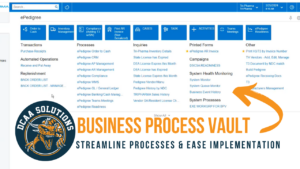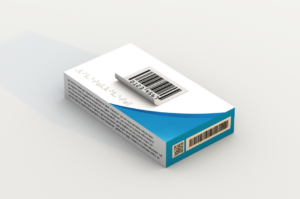The pharmaceutical industry is no stranger to regulatory changes, and the Drug Supply Chain Security Act (DSCSA) stands out as a critical milestone in ensuring the safety and integrity of the pharmaceutical supply chain. As we step into 2024, pharmaceutical distributors must gear up for new DSCSA requirements that have come into effect, reshaping the industry’s compliance landscape.
What is DSCSA?
The Drug Supply Chain Security Act, enacted in 2013, aims to enhance the security of the pharmaceutical supply chain, protecting consumers from exposure to counterfeit, contaminated, or otherwise harmful drugs. The DSCSA outlines a phased approach to implementation, with the latest set of requirements taking effect in 2023.
DSCSA Compliance: A Vital Imperative
Ensuring compliance with DSCSA is not merely a regulatory checkbox; it is a vital imperative to safeguard public health and maintain the integrity of the pharmaceutical supply chain. Distributors play a pivotal role in this process, as they act as crucial intermediaries between manufacturers and pharmacies.
Key Changes in DSCSA Requirements for 2024
- Serialization of Product Information:
- Pharmaceutical distributors must ensure that product information includes a unique serial number, lot number, and expiration date.
- The serialization process enhances traceability, allowing stakeholders to track and trace the movement of pharmaceuticals through the supply chain.
- Enhanced Verification and Authentication:
- Distributors must implement systems for verification and authentication of serialized products.
- This step is crucial in preventing the distribution of counterfeit drugs and ensuring that only legitimate pharmaceuticals reach the end consumer.
- Standardized Data Exchange:
- DSCSA mandates the use of standardized methods for exchanging transaction data, history, and statements in electronic format.
- This facilitates seamless communication between supply chain stakeholders, promoting transparency and efficiency.
DSCSA Compliance Software: A Technological Ally
To navigate the complex landscape of DSCSA compliance, pharmaceutical distributors should leverage advanced technologies, such as DSCSA compliance software. These solutions streamline and automate key processes, ensuring accuracy, efficiency, and real-time compliance monitoring. Key features of such software may include:
- Serialization and Traceability: Easily generate and manage unique serial numbers for each product, enabling efficient traceability throughout the supply chain.
- Verification and Authentication: Implement automated systems for verifying the authenticity of products, reducing the risk of counterfeit distribution.
- Data Exchange: Facilitate seamless communication by adopting standardized electronic data exchange methods, ensuring compliance with DSCSA requirements.
- Real-time Monitoring and Reporting: Keep a watchful eye on compliance status through real-time monitoring and generate comprehensive reports for regulatory audits.
DSCSA Start Date and Transition Period
The DSCSA requirements that came into effect in 2023 marked a significant milestone. However, the regulatory authorities have provided a transition period to allow stakeholders to fully adapt to the new requirements. Distributors should use this time wisely to ensure a smooth transition and avoid potential disruptions to their operations.
As we embrace the new era of DSCSA compliance in 2024, pharmaceutical distributors must prioritize the implementation of advanced technologies and robust processes. By doing so, they not only meet regulatory obligations but also contribute to building a safer and more secure pharmaceutical supply chain. The adoption of DSCSA compliance software is a strategic move that will not only enhance efficiency but also position distributors as key players in ensuring the integrity of the global pharmaceutical distribution network. In this ever-evolving regulatory landscape, staying ahead is not just an advantage—it’s a necessity for the well-being of patients and the pharmaceutical industry as a whole.



